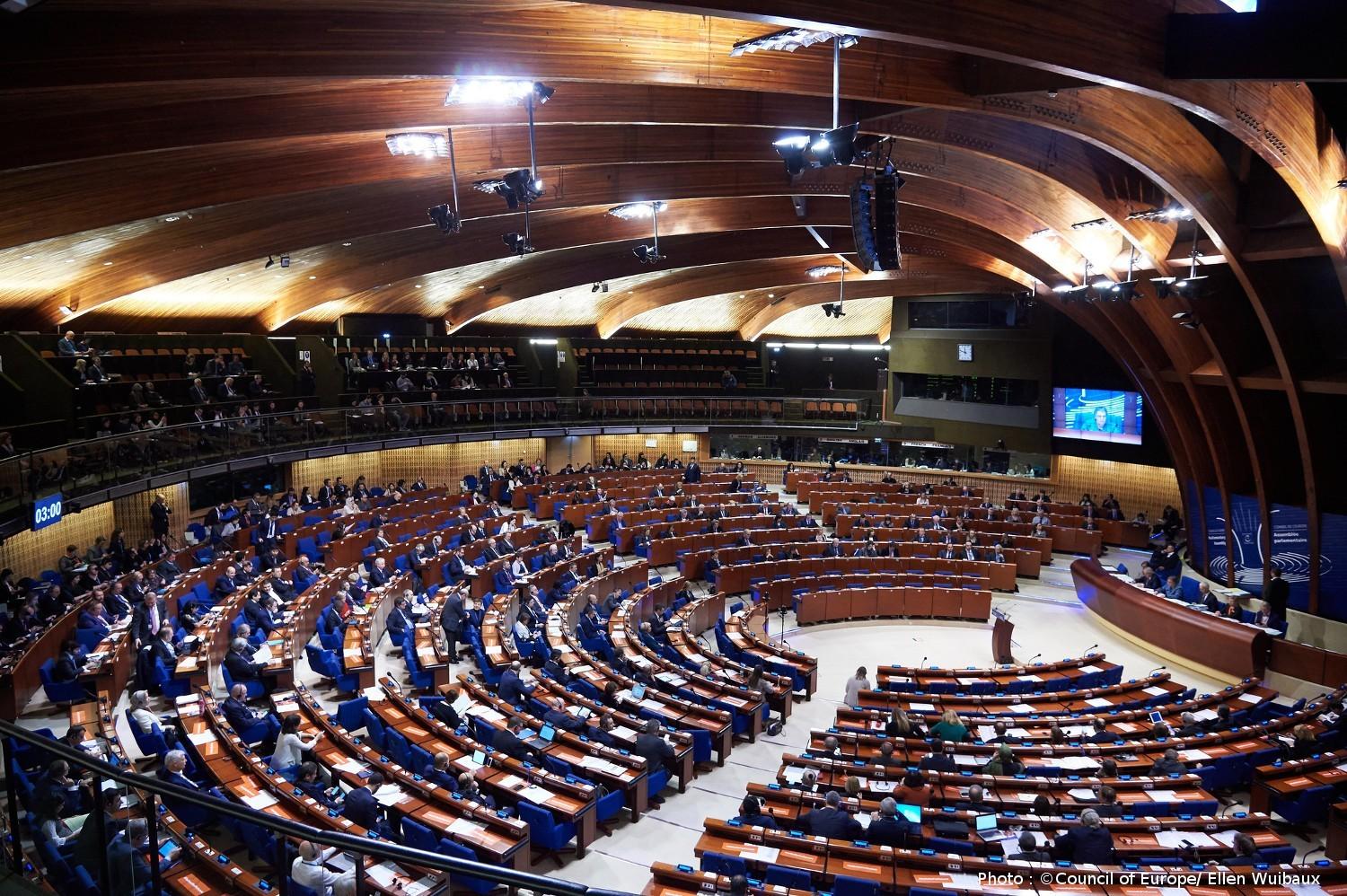Russia has been allowed back into the Parliamentary Assembly of the Council of Europe (PACE), after sanctions placed on it were lifted at a meeting in Strasbourg on Tuesday.
Russian delegates are now once more permitted to vote in the election of the body’s next secretary-general. But Ukraine is pushing back.
“Shortly after this resolution was passed, we applied for participation,” TASS quoted Vyacheslav Volodin, a speaker of Russia’s lower house of parliament as saying on Tuesday, adding that PACE’s decision enables Russian parliamentarians, “to start working.”
Russia lost its voting rights in PACE in 2014 over the crisis in Ukraine and annexation of the Crimean peninsula. The Kremlin responded by withdrawing its delegation from PACE, and in 2017 halted its scheduled €32.8 million ($37.3 million) contribution to the Council of Europe’s annual budget, which stands at €316 million ($360 million).
PACE’s assembly adopted a resolution limiting the powers of the Council of Europe to sanction violating states.
“The members’ rights to vote, to speak and to be represented in the Assembly and its bodies shall not be suspended or withdrawn in the context of a challenge to or reconsideration of credentials,” reads the document titled “Strengthening the decision-making process of the Parliamentary Assembly concerning credentials and voting.”
The resolution allowing Russia to return to the assembly after five years of suspension was passed with 118 votes in favor and 62 against, 10 delegates abstained. Accompanied by an Explanatory Memorandum by the Rapporteur Ms. Petra De Sutter, the document allows the Russian delegation to participate in Wednesday’s vote for a new Secretary-General of the council.
Meanwhile, PACE’s decision has caused a wave of outrage from Ukraine, which has threatened to leave the organization in protest of Russia’s return. The delegates from Ukraine consider the resolution to allow for the return of Russia as an unacceptable concession to Moscow.
“Russia’s return to #PACE is the aggressor’s revanche and an utter display of contempt for international law,” Ukraine's Prime Minister Volodymyr Groysman wrote on his Facebook official page.
While Kiev criticizes the resolution adopted by PACE, some observers believe that expelling Russia from the council - a leading institution for human rights in Europe - would have been disastrous for organizations operating in the country.
“The immediate impact of Russia's departure from the council would be felt most not by the Kremlin, but rather by the Russian people,” said the Netherlands Helsinki Committee in a statement back in December. “Russia's departure from the council would deny Russian citizens protection and justice provided by the court - worsening human rights in the country.”







 President Ilham Aliyev shed light on the evolving contours of the peace process with Armenia during an international conference in Baku this week. ...
President Ilham Aliyev shed light on the evolving contours of the peace process with Armenia during an international conference in Baku this week. ...
 Azerbaijan and Armenia started the process of demarcation of their border on Tuesday, with the installation of the first border markers based on ge...
Azerbaijan and Armenia started the process of demarcation of their border on Tuesday, with the installation of the first border markers based on ge...
 Armenian sappers commenced on Monday mine-clearance operations in the territories adjacent to the Saint Mary Church in village of Voskepar (Armenia...
Armenian sappers commenced on Monday mine-clearance operations in the territories adjacent to the Saint Mary Church in village of Voskepar (Armenia...
 Iran and Pakistan have signed eight cooperation documents in various fields, and agreed to strengthen ties to fight terrorism in the region.
Iran and Pakistan have signed eight cooperation documents in various fields, and agreed to strengthen ties to fight terrorism in the region.



